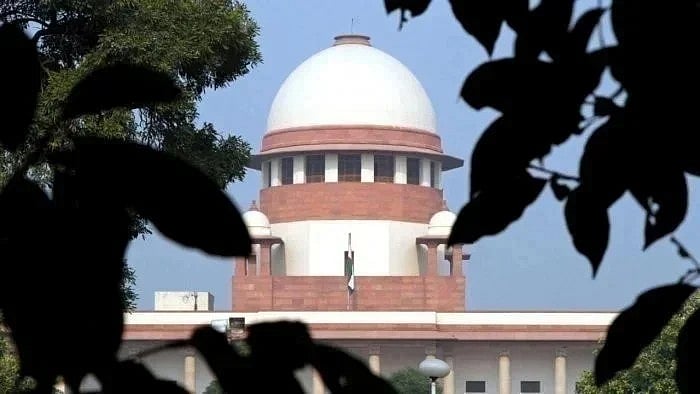
The Supreme Court of India.
Credit: PTI File Photo
New Delhi: The All India Muslim Personal Law Board said that it is disappointed with the Supreme Court’s interim judgement on the Waqf (Amendment) Act. Spokesperson SQR Ilyas said that while the Court has granted partial relief, it has not addressed the wider constitutional concerns.
The Muslim body further said that although the apex court stayed certain provisions of the amendment, the Muslim community and the Muslim Personal Law Board had expected a stay on all clauses that "contradict the fundamental provisions of the Constitution".
“Many crucial provisions, which on the face of it end in the understanding of the community at large, are completely arbitrary; have not been stayed at the interim stage. The final decision is yet to come, but with the prejudiced manner that the government functionaries work, the community feels that those provisions not stayed at this stage shall be abused,” Ilyas said in a statement.
The Personal Law Board said that the Supreme Court’s interim order has provided relief on some key aspects, such as protection of property rights. The apex court has ruled that waqf properties cannot be dispossessed or altered in official records until a final decision is delivered. It further stayed the provision that required a government officer’s report to validate waqf ownership, observing that executive authorities cannot decide property rights of citizens.
The court has also stayed the operation of Section 3C of the Act and clarified that a government officer cannot have the unilateral authority to decide who is eligible to create a waqf. Additionally, the court emphasised that a revenue officer cannot be entrusted with the work of determination of the title of a property, keeping in view the principle of separation of powers.
The court has directed that the Central Waqf Council shall not consist of more than four non-Muslim members (out of 22), and the state waqf boards shall not have more than three non-Muslim members (out of 11).
“The Board feels that the entire amendment is a deliberate move to weaken and seize waqf properties. It therefore demands the complete repeal of the Waqf (Amendment) Act 2025 and the restoration of the earlier Waqf Act. The refusal to stay the entire Act leaves numerous other harmful provisions in operation, including the prospective de-recognition of 'Waqf by user' and the mandatory requirement of a Waqf deed, which goes against the established tenets of Islamic law,” the statement added.
Ilyas further said that the Board’s 'Save Waqf' campaign would continue with nationwide protests which would culminate in a rally at Delhi’s Ramlila Maidan on November 16.
